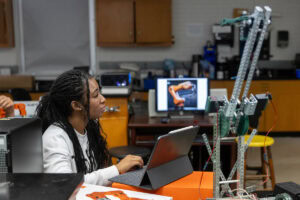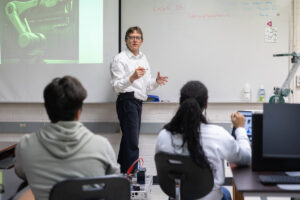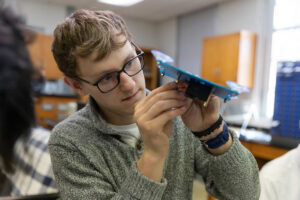Robotics and mechatronics major in high demand with students
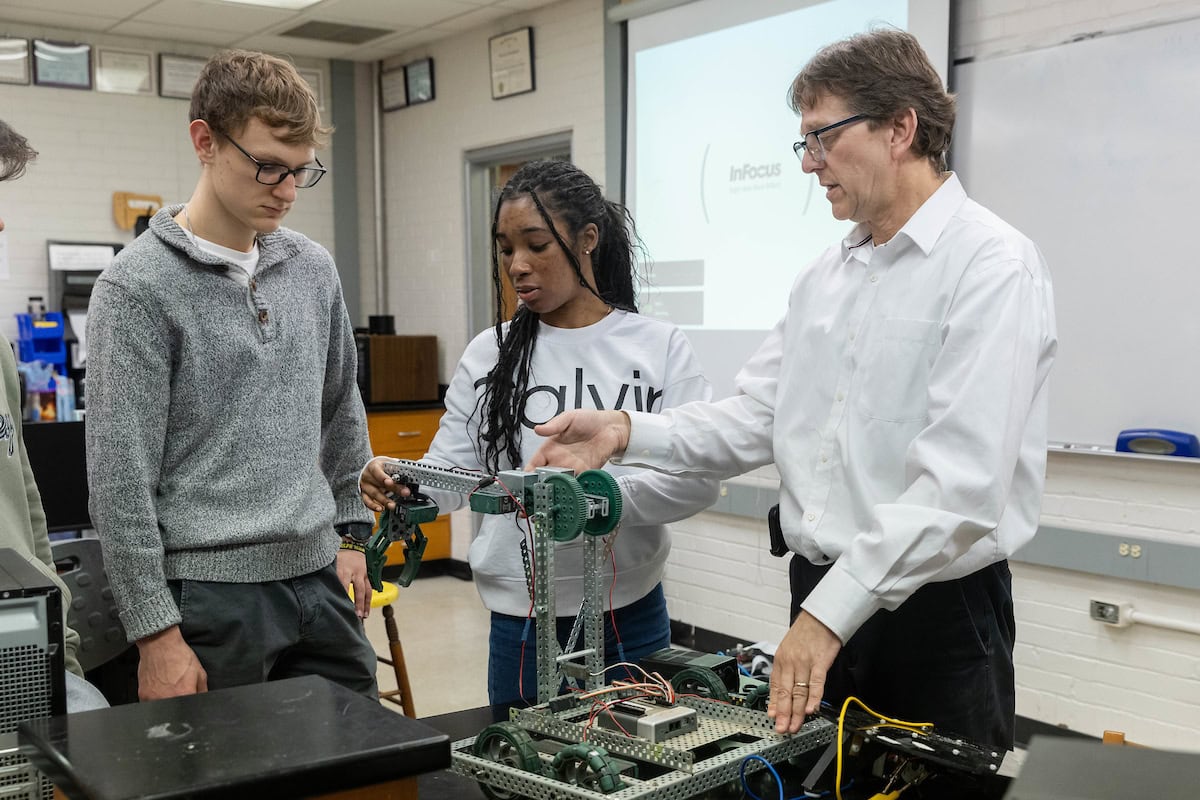
Randolph’s new robotics and mechatronics engineering major, which will begin this fall, provides students with the best of both worlds—a challenging, high-tech educational foundation in an environment with small classes, accessible professors, and numerous opportunities for real-world research experience.
Every major industry—think telecommunications, agriculture, transportation, biotechnology, automobile, national security, and renewable energy—relies heavily on mechatronics, an emerging field at the center of one of Randolph’s newest majors.
While some might think an aspiring engineer would need to go to a big state school to be successful in the field, a liberal arts college provides unique benefits for those pursuing these careers.
Randolph’s new robotics and mechatronics engineering major, which will begin this fall, provides students with the best of both worlds—a challenging, high-tech educational foundation in an environment with small classes, accessible professors, and numerous opportunities for real-world research experience.
“Engineering is a space unto itself in college and naturally takes more credits than most other majors,” said Peter Sheldon, Randolph’s Charles A. Dana Professor and chair of the physics and engineering departments.
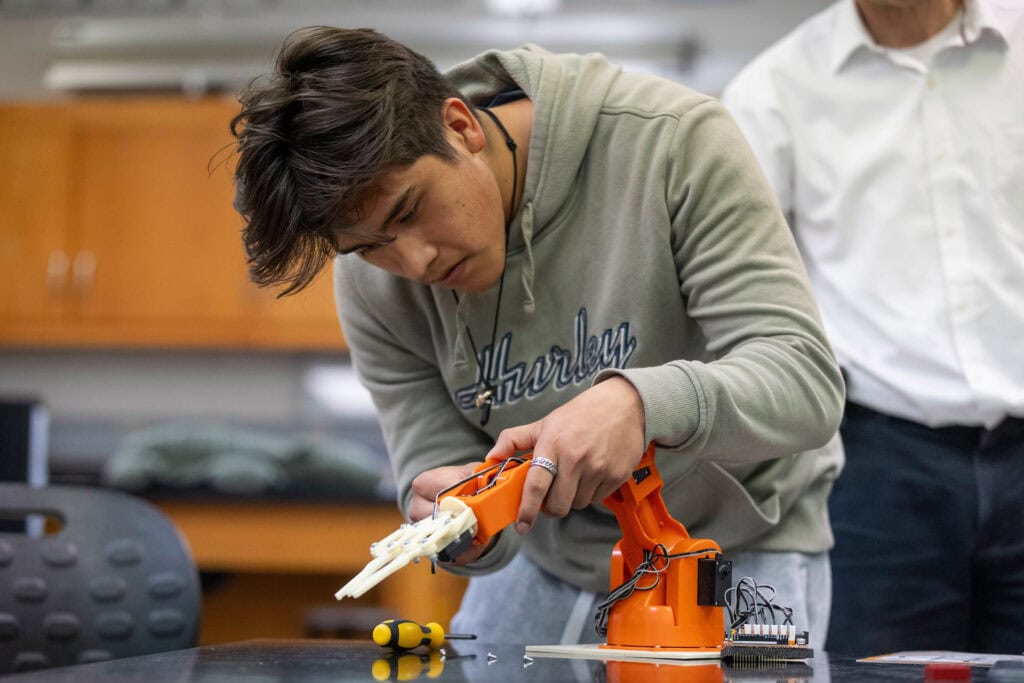
“Engineering schools are typically larger, and only a fraction of the students get hands-on opportunities,” he added. “Here at Randolph, you are going to get your hands on the equipment. You are going to get those opportunities to do further research and projects beyond the classroom, and there are also great support systems set up to help students succeed.”
An interdisciplinary branch of engineering, mechatronics involves mechanical, electrical, and computer engineering. Robotics is a subset of that, focusing on applied systems to design, build, and operate smart machines.
“Think about how robots work or how motors work,” Sheldon explained. “There are physical things that you have to put together to, for instance, move a robotic arm. That’s mechanical engineering. Then you’ve got the electrical components that run the robotic or motor parts, and you use computer engineering to program them to do various tasks.”
Mechatronics also plays a big role in industrial engineering, “an industry where you’re putting things together and going from raw materials to finished products,” he said.
Students will gain a foundation in engineering, computer science, physics, mathematics, and chemistry—and receive hands-on experience with robots from the start.
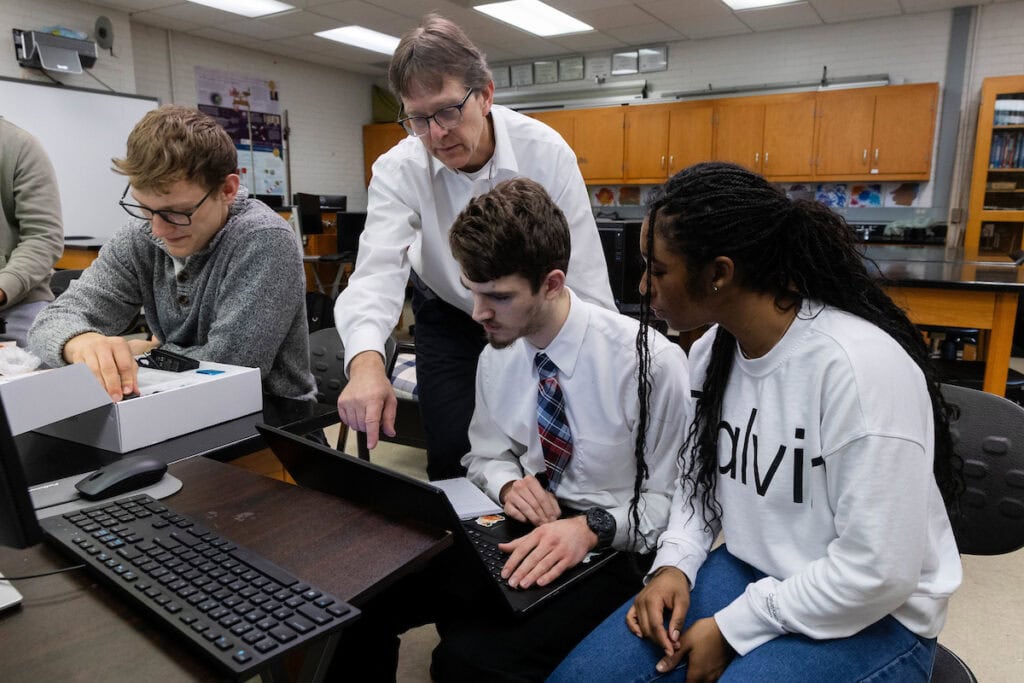
“We have seen a growing interest in majors such as this and believe offering robotics and mechatronics engineering at Randolph will meet the needs of current and future students,” said Travis Carter, dean of admission and financial aid. “This is an exciting addition to our already strong academic program.”
The coursework is varied; students will go from studying the chemistry of materials to electronic circuits to computer programming, which will all be brought together in manufacturing and engineering.
They’ll finish their degree in four years, culminating in a capstone project that Sheldon said is “very much in the field, actually producing something that works, likely with partners in the industry.”
Those partnerships will be easier to come by in Lynchburg.
“While manufacturing and robotics are big everywhere, this is a particular hotbed for that kind of engineering,” Sheldon said. “We are well-situated with a lot of engineering companies and others in the industry, which is one of the reasons why we chose this major. There’s going to be a lot of partnership opportunities.”
The College has hired two new full-time professors of engineering and is renovating an entire floor in Presser Hall, which will be home to a new teaching lab, research spaces, and machine shop—on top of the ongoing multimillion-dollar renovation of Martin Science Building.
“The engineering program at Randolph is a unique liberal arts experience for those who are not sure where they want to go in the field,” said Severin McNulty ’27. “There are lots of opportunities to get out there and try new things. The robotics and mechatronics program will add diversity to the department and bring in more staff with unique backgrounds, allowing for a better education for all students.”
